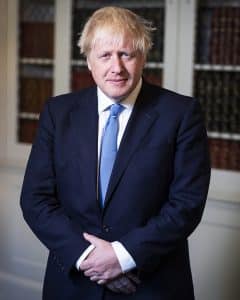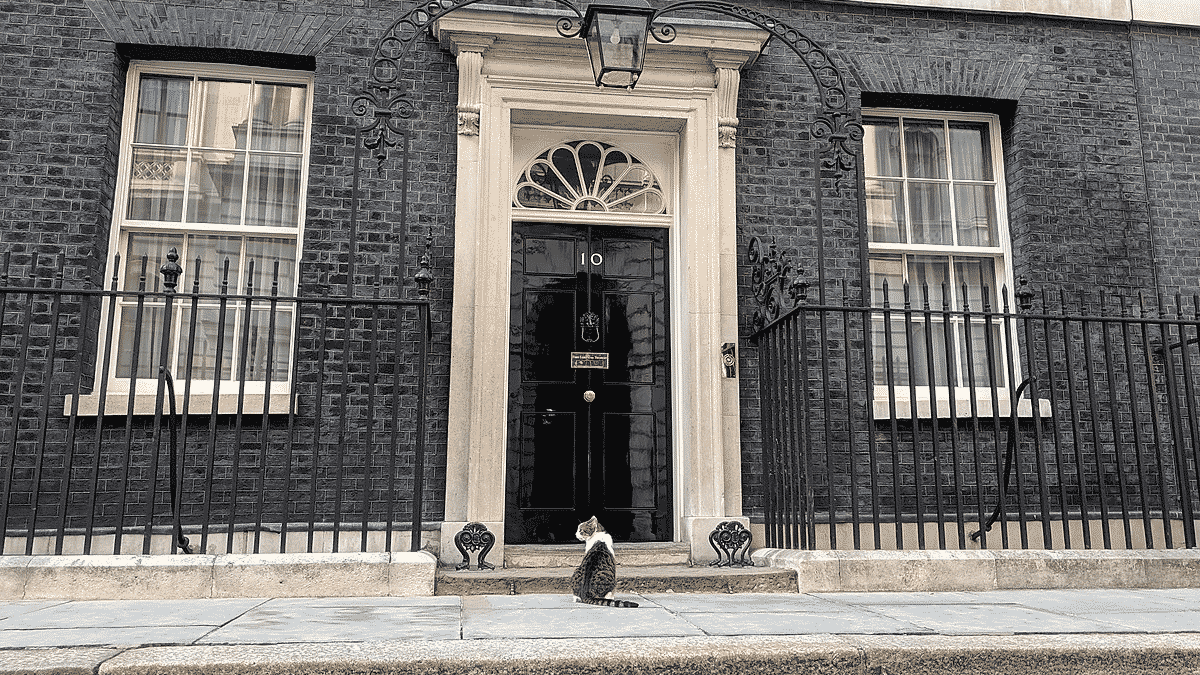The Boris Johnson Plagiarism Scandal
The UK's turn at this...

The United Kingdom is in the midst of what might be its most important election in a century. With the drama over Brexit swirling, the country is at a crossroads and it’s very likely that the next election will shape the future of the country for decades to come.
However, that election took a back seat on Friday following a terror attack on London Bridge that killed two people and injured three. That attack has now become a talking point of the election itself, with all sides striving to assure voters.
One of the more notable responses was from Prime Minister Boris Johnson, who is also head of the Conservative Party. In a 16-tweet thread, outlined why the alleged attacker was released, putting the blame on the Labour Party, his biggest political opponents.
However, shortly after it was published, a pseudonymous blogger, The Secret Barrister, put out his own tweet calling the thread a plagiarism of his blog post, which had been published just hours earlier.
According to The Secret Barrister, Johnson cited the same sources he did, made similar observations and then “stripped out the inconvenient context and adopted a false conclusion.”
He also added:
“I find it fascinating that, having never previously shown any interest in explaining complex areas of law to the public, within hours of my posting of a full explanation of the legal issues involved in this case, the Prime Minister’s Twitter account embarked upon a 16-tweet legal thread…”
This, as with any case of political plagiarism, has led to a sharp divide. In the responses to the thread, many have used The Secret Barrister’s words against Johnson. Others, however, have defended him against the claim.
As for Johnson himself, neither he nor his party has made a direct comment though one article did report that a source close to Johnson denied the claims.
Understanding the Allegations
It’s important to fully understand the allegations against Johnson. Even though many have called this a “copy and paste” plagiarism, including The Secret Barrister himself, it is not actually that.
The words between the two are completely different. In fact, there are a lot of differences between the two works, in particular with the conclusions. They are similar works, but they are not identical or even nearly identical.
Instead, the allegations center around a combination of the points that Johnson raises, the order that they are raised in and the source he cites. In particular, The Secret Barrister found it odd that both he and Johnson referenced the same document by the Prison Reform Trust charity.
To that end, it’s easy to see why The Secret Barrister and those that support him see the similarities. The tweet thread and his post are indeed very similar, hitting very similar points and differing only with the conclusions. Though no words are copied, one might say the structure of the posts are very similar.
But does this prove plagiarism? This is where things get thorny.
For The Secret Barrister, the case is open and shut, “The possibility that the PM’s own legal advisers drafted his thread without any regard to my witterings has to be carefully considered. But I just can’t see it.”
He goes on to add:
“The number of people who have (apparently independently) noticed the similarities in substance, even if the language has been changed, leads me to believe I’m not going mad. The most obvious explanation is that Johnson (or likely his special advisers) have taken their info from the blog, stripped out the inconvenient context and used it to present Johnson as a legal sage sharing his wisdom. Or, as I’m told academics would term it, plagiarism.”
But is it that straightforward? For me personally, while I agree that there is a reason to be suspicious and wary, it’s hardly an open and shut case. It may well be plagiarism, but there are some pieces to the puzzle missing as it stands right now.
My Interpretation
To prove that something is plagiarized, one usually has to answer three questions:
- Was the work correctly cited? If it’s correctly cited, it’s not plagiarism.
- Can the similarities be explained by common sourcing, including tropes, cliches, etc? If so, it’s not plagiarism, at least not a plagiarism of the work in question.
- Can the similarities be explained by coincidence? Coincidences happen. Look at the case of Dennis the Menace. Coincidences aren’t plagiarisms.
The first two aren’t helpful here as there is no citation in either work and there’s no indication that The Secret Barrister pulled his format from another source or from a template of some kind. That leaves only the third issue.
But this is where things fall apart a bit. Coincidence is often very difficult to disprove satisfactorily. With verbatim plagiarism, this is relatively easy. We can show that certain strings are unique to the two works and that the odds of them being created independently are astronomical.
With this, that gets much more difficult. While it’s true that the two pieces make many of the same points in the same order, even working to dispell some of the same misconceptions, there’s good reason to believe that anyone else who wrote a piece on this topic might do the same thing.
While there are certainly different ways to cover this, the fact that there are alternate approaches doesn’t preclude coincidence. It’s very possible Johnson, or someone on his team simply wrote a similar piece on the same topic. It’s also possible that whoever wrote the tweets looked at The Secret Barrister’s article decided to mimic it without attribution. We simply don’t know.
The only other evidence we really have is the quick turnaround which, despite The Secret Barrister’s claim, actually harms his point slightly. While it’s certainly possible to turn around a tweetstorm in that short of a period of time, this is a political campaign and the leader of a major political party. It’s unlikely it was assembled so quickly, especially given the subject matter.
The truth is that we don’t know and not only is there not enough evidence to say conclusively this is plagiarism but there likely never will be. Barring a confession by Johnson or additional information about who wrote the tweets and how, we are unlikely to have enough information to be 100% sure one way or another.
But, even if we did, the damage would be somewhat limited. While copying someone’s outline and one of their sources is certainly plagiarism, it’s also not as severe as verbatim copying or more direct paraphrasing.
The Secret Barrister’s original post has over 3,700 words and Johnson’s tweets barely break 700 (though they include images of documents). It’s not verbatim plagiarism and it’s not a paraphrase, it’s a different beast altogether. They are similar documents in structure and source only. Though all plagiarism is serious, it’s hard to stack this up to the Melania Trump case, where significant passages were copied in a supposedly personal portion of a speech from a political rival.
To that end though, this case will always likely live in ambiguity, with one’s views on both the probability and the severity of the case having more to do with the person’s politics than the facts at hand.
Bottom Line
Cases like this are frustrating. I don’t feel comfortable saying definitively that Johnson or his campaign plagiarized, but we can’t definitively say the opposite either. There are no clear answers and there likely never will be.
To be clear, even if it turns out there is no plagiarism, I don’t think that The Secret Barrister is crazy or in the wrong for raising the issue. Human beings are trained to see patterns. We saw this first hand in the Tardigrades case and I even demoed it by creating a fake plagiarism story.
He’s not going mad. This is, at worst, human nature.
But, in the end, this plagiarism scandal will go the way of so many others we’ve seen on both sides of the Atlantic. Supporters of Johnson will minimize while his opponents will maximize the story. It’s less a case about plagiarism and allegations thereof and more a case about politics.
It’s frustrating, but it’s our reality.
Featured Photo by Parrot of Doom & Licensed Under CC BY-SA 4.0
Photo of Boris Johnson by Ben Shread & Licensed Under OGL 3
Want to Reuse or Republish this Content?
If you want to feature this article in your site, classroom or elsewhere, just let us know! We usually grant permission within 24 hours.
